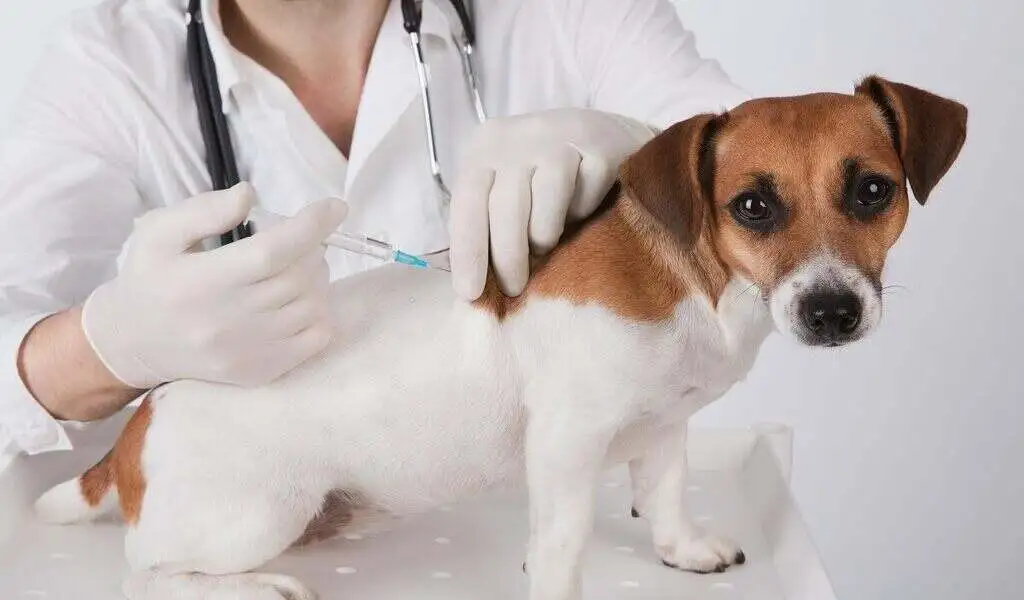Vaccinating your dog is a must. No matter which breed it belongs to or what its age is, giving timely vaccinations can prevent your little one from suffering from a huge number of infectious diseases.
Ideally, the core vaccines are given at stages of three (6, 12, and 16 weeks of age) for preventing hepatitis, leptospirosis, and parvoviruses among others. A rabies vaccine is also given to many dogs that cost around $15-20 USD. If your puppy is supposed to take its first shot, here are six things to expect beforehand to make both your lives easier.
Why are vaccines important?
Just like humans need to protect themselves from various deadly viruses and pathogens, dogs also need to be protected from harmful agents. Vaccines help to prepare your dog’s immune system to ward off any disease-causing organisms.
The main theory is that weakened or dead viruses are introduced inside your dog’s body. Its natural immune system gets activated after this viral invasion and this system fights off the virus.
As a result, the activated immune system is able to fight off the same virus if it tries to enter your dog’s body for a second time. This entire phenomenon is based on your pet’s immune system’s ability to recognize the pathogen.
What are the main vaccinations to be done?
Core dog vaccines are considered to be essential for all canine breeds. These diseases are listed on the basis of exposure, severity, and risks of transmission to other animals or humans. The American Animal Hospital Association‘s Canine Task Force considers four vaccinations as core, namely: Canine Parvovirus, Canine Distemper, Hepatitis, and Rabies.
Non-core vaccines are also administered for diseases like Bordatella, Canine Influenza, Leptospirosis, and Lyme Disease. Even though these vaccinations aren’t considered core ones, they should nevertheless be given.
What about optional vaccines?
It’s definitely not possible to be vaccinated against every single disease, and this is not even necessary. There are a few diseases against which your dog doesn’t need to be vaccinated.
This mostly depends on your dog’s age, medical history, environment, and travel history. You can consult your vet regarding any optional vaccines that your dog has to take in order to stay safe.
When to start the vaccination process?
Ideally, you should start vaccinating your Dog as soon as you adopt it. Most puppies are adopted between 6 to 8 weeks of age and this is a good time to start the vaccination process.
After starting from 6-8 weeks, a three-week gap should be given until your little one is four months old. This is when it’ll receive its final shot. If the mother had a healthy immune system, many of the antibodies will have been passed down from her to the puppies.
So the baby you adopted might or might not have a healthy immune system depending on its parents. After the puppy has been weaned off its mother’s milk, you should start taking it for vaccination.
Vaccination schedule
After your puppy becomes an adult, your vet will give a vaccination schedule that consists of periodic boosters. These boosters are nothing but the previous vaccines it had taken, along with some new additives. Boosters will keep your dog’s immune system strong for all its life.
When adult dogs go for their first one-year visit to the vet, it is recommended to give booster shots of DHPP, Leptospirosis, and Rabies. If your dog requires boosters for Canine Influenza and Lyme diseases, they can also be taken again.
Side effects of vaccines
Most owners are afraid to give their dogs vaccines due to their negative side effects, but we assure you that the advantages outweigh the disadvantages greatly.
However, some mild side effects can occur, which will go away in just a day or two. These symptoms include fever, sluggishness, loss of appetite, and pain around the injection site.
Make sure to have plenty of healthy food and fresh water stocked up and someone to take care of your dog if it starts showing side effects. You can buy pet food online or go to a store yourself.
Over to you…
Administering the correct vaccines to your puppy or dog at the correct time is extremely important. Always be prepared beforehand for any kind of side effects, both mild or adverse. Have chew toys and a cosy bed ready right after the appointment. In case of any mishaps, immediately consult your vet.
Also Check:
Dietitian: The Perfect Breakfast to Lower Blood Sugar
6 Things To Know Before Vaccinating Your Dog
The Perfect Fruits to Help Lower Blood Sugar, Says Nutritionist
What Are The Four Stages Of Alzheimer’s Disease?






